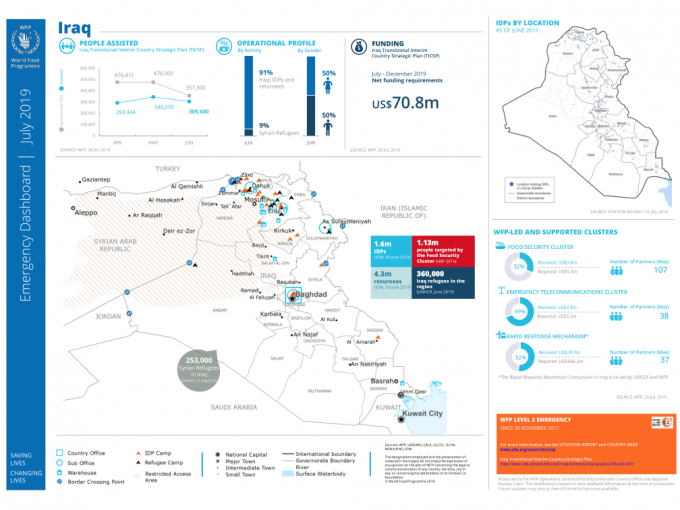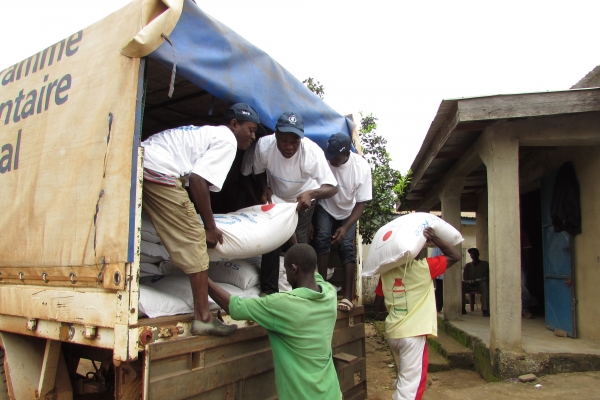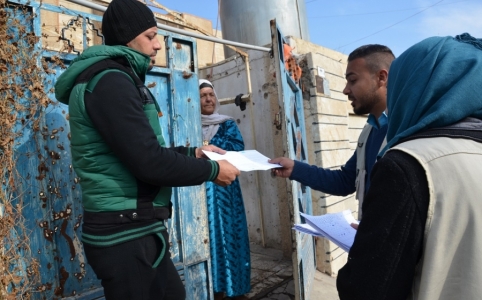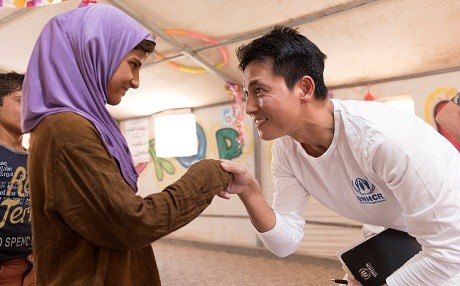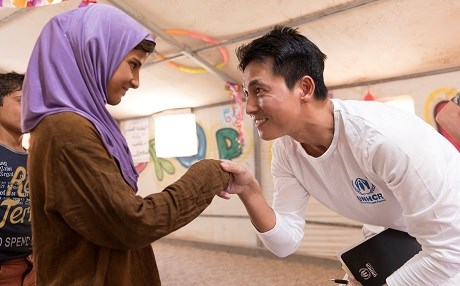In Numbers
- 378,787 people assisted in July 2019
- 1,87 mt of food assistance distributed
- USD 3.04 million cash-based transfers made
- USD 68.2 million six months (August 2019 – WFP January 2020) net funding requirements
Operational Updates
- In July, WFP delivered food assistance to 378,787 people in 10 governorates, reaching 89.7 percent of the monthly target of 422,376 people. This is mainly due to some delays in Mobile Money Transfers (MMT) payments to people assisted due to banking regulations issues. WFP Iraq is taking steps to resolve this by opening a local bank account in Iraqi dinars.
- WFP Iraq continues to coordinate with the Ministry of Migration and Displacement (MoMD) to meet the food needs of IDPs. In Anbar, Ninewa and Salah al-Din, WFP delivered a “top-up” to MoMD’s assistance. This represents around 65 to 70 percent of the total entitlement provided by MoMD and mainly consists of cereals and lentils (50 kg per-household) to complement MoMD’s food basket, or a cash transfer of 11,000 IQD.
- General food assistance to refugees is now being delivered through MMT. The transition from e-vouchers included successful rounds of SIM card distributions in nine camps, with good coordination between WFP teams, partners, camp management and Financial Service Provider (FSP) teams.
- In close coordination with the Ministry of Education, preparations are underway to resume School Feeding in October for the new academic year. A Call for Proposals for cooperating partners took place, and recruitment for the new team is also starting.
- Over 1,000 students graduated from the first cycle of EMPACT digital skills training. They are now enrolled in advanced (Level 2) courses focusing on advanced digital skills and English. Outreach is underway for the second cycle of new students to begin Level 1 classes in August. WFP Iraq’s sub-offices have received a donation of Google Chromebooks, which will be handed over to EMPACT classrooms for participants to use for freelance work from August.
- As part of the testing phase of the digitalisation of Iraq’s Public Distribution System (PDS) social safety locations in Anbar governorate. The first ePDS distributions took place in Duhok and Najaf, and the second distribution cycle took place in Baghdad.
- In partnership with Mosul University, WFP Iraq’s Resilience team has begun the “three-pronged approach” (3PA) training for the planning of resilience projects. The 3PA takes into account the nationwide, seasonal/livelihoods and community levels for planning.
(Source: WFP)

